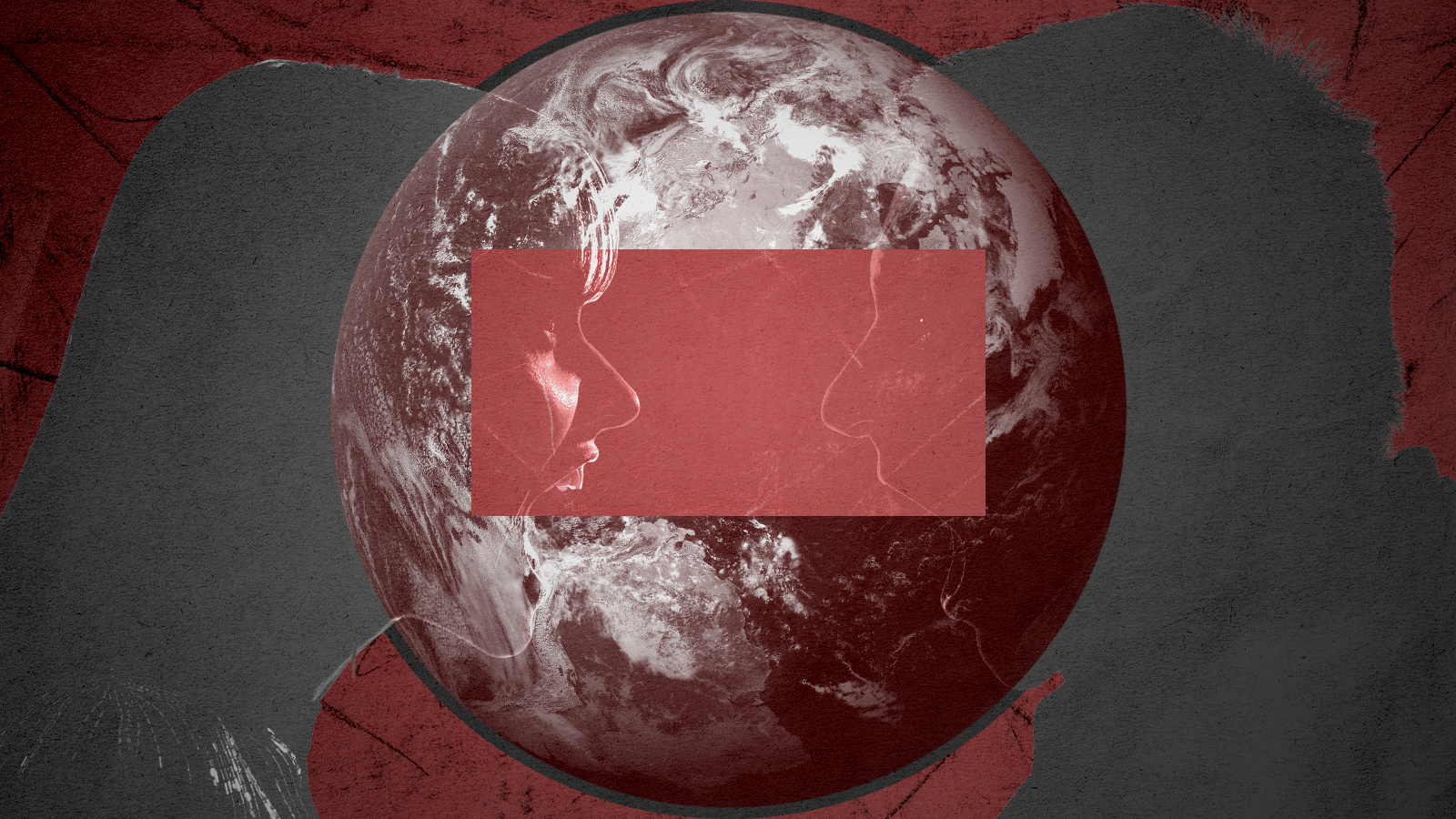The culture war goes global


A free daily email with the biggest news stories of the day – and the best features from TheWeek.com
You are now subscribed
Your newsletter sign-up was successful
In The New York Times, Farhad Manjoo worries that human beings may be losing the capacity to get along and solve global problems. For evidence, he cites our struggles to devise effective responses to environmental (climate change) and epidemiological (COVID-19) threats. Both problems require collective action, and our efforts are falling short on both fronts. Instead of working together toward common goals, we're bickering endlessly, with significant numbers around the world falling prey to online conspiracies and disinformation that make international coordination and cooperation more challenging.
Might we be in the early stages of an era marked by growing disorganization and collective confusion?
Perhaps. But I think it's more likely that something else is going on.
The Week
Escape your echo chamber. Get the facts behind the news, plus analysis from multiple perspectives.

Sign up for The Week's Free Newsletters
From our morning news briefing to a weekly Good News Newsletter, get the best of The Week delivered directly to your inbox.
From our morning news briefing to a weekly Good News Newsletter, get the best of The Week delivered directly to your inbox.
Manjoo's disillusioned hopes for international cooperation derive from the progressive left's longstanding vision of a world moving toward the construction of a single, homogeneous government in which experts from all nations agree on the big questions and act in concert in devising and implementing answers. Judged by that standard, we do indeed seem to be careening toward chaos.
But what if digital technology (and especially social media) is producing a different form of world government — one riven at the international level by the same conflicts that divide states internally? I'm talking, of course, about the culture war.
As I've noted on other occasions, thanks to politically engaged citizens sharing viral words and images online, the rainbow flag is now recognized, and flown by progressives, the world over as a moral statement and expression of solidarity on issues of sexuality and gender. QAnon groups have likewise sprung up in countries around the globe, joining a motley international crew of anti-vaxxers, anti-immigration activists, and Donald Trump admirers in rowdy right-wing-populist protests against whatever policies a country's technocrats are attempting to impose from above.
This doesn't mean we've entered an age of nationalism. On the contrary, it means our moves towards an international polity have reproduced national divisions on a global scale — with an international populist right doing battle with an international progressive left almost everywhere in the democratic world.
A free daily email with the biggest news stories of the day – and the best features from TheWeek.com
Manjoo is right that this conflict is getting in the way of international cooperation. But that's how it always is in politics, which in the ultimate sense involves a collective effort to settle the never-fully-resolvable question of who we are and how we should live. In this respect, our struggles to respond to global problems aren't arising because we've lost the ability to get along. They're arising because we're getting along the way we always have — which is to say, politically.
Damon Linker is a senior correspondent at TheWeek.com. He is also a former contributing editor at The New Republic and the author of The Theocons and The Religious Test.
-
 How the FCC’s ‘equal time’ rule works
How the FCC’s ‘equal time’ rule worksIn the Spotlight The law is at the heart of the Colbert-CBS conflict
-
 What is the endgame in the DHS shutdown?
What is the endgame in the DHS shutdown?Today’s Big Question Democrats want to rein in ICE’s immigration crackdown
-
 ‘Poor time management isn’t just an inconvenience’
‘Poor time management isn’t just an inconvenience’Instant Opinion Opinion, comment and editorials of the day
-
 Big-time money squabbles: the conflict over California’s proposed billionaire tax
Big-time money squabbles: the conflict over California’s proposed billionaire taxTalking Points Californians worth more than $1.1 billion would pay a one-time 5% tax
-
 Did Alex Pretti’s killing open a GOP rift on guns?
Did Alex Pretti’s killing open a GOP rift on guns?Talking Points Second Amendment groups push back on the White House narrative
-
 Washington grapples with ICE’s growing footprint — and future
Washington grapples with ICE’s growing footprint — and futureTALKING POINTS The deadly provocations of federal officers in Minnesota have put ICE back in the national spotlight
-
 Trump’s Greenland ambitions push NATO to the edge
Trump’s Greenland ambitions push NATO to the edgeTalking Points The military alliance is facing its worst-ever crisis
-
 Why is Trump threatening defense firms?
Why is Trump threatening defense firms?Talking Points CEO pay and stock buybacks will be restricted
-
 The billionaires’ wealth tax: a catastrophe for California?
The billionaires’ wealth tax: a catastrophe for California?Talking Point Peter Thiel and Larry Page preparing to change state residency
-
 Trump considers giving Ukraine a security guarantee
Trump considers giving Ukraine a security guaranteeTalking Points Zelenskyy says it is a requirement for peace. Will Putin go along?
-
 Bari Weiss’ ‘60 Minutes’ scandal is about more than one report
Bari Weiss’ ‘60 Minutes’ scandal is about more than one reportIN THE SPOTLIGHT By blocking an approved segment on a controversial prison holding US deportees in El Salvador, the editor-in-chief of CBS News has become the main story
